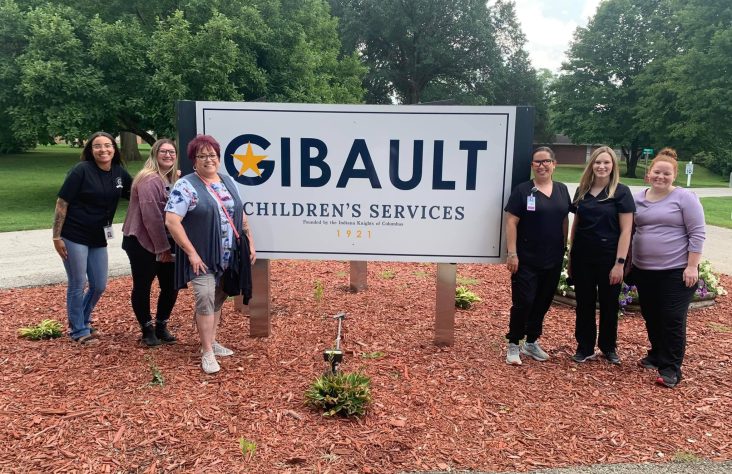November 19, 2009 // Uncategorized
Bishops approve revised directives on withdrawal of food, water
By Nancy Frazier O’Brien
BALTIMORE (CNS) — The U.S. bishops overwhelmingly approved a revision to the directives that guide Catholic health care facilities, clarifying that patients with chronic conditions who are not imminently dying should receive food and water by “medically assisted” means if they cannot take them normally.
“In principle, there is an obligation to provide patients with food and water, including medically assisted nutrition and hydration for those who cannot take food orally,” says the revised text of the “Ethical and Religious Directives for Catholic Health Care Services” prepared by the U.S. bishops’ Committee on Doctrine.
“This obligation extends to patients in chronic and presumably irreversible conditions (e.g., the ‘persistent vegetative state’) who can reasonably be expected to live indefinitely if given such care,” the new text adds.
The vote was 219-4 in favor of the revision Nov. 17, the second day of the U.S. Conference of Catholic Bishops fall general assembly in Baltimore.
Bishop William E. Lori of Bridgeport, Conn., chairman of the bishops’ Committee on Doctrine, said the changes would help bishops to be “teachers of the faith,” medical practitioners to “follow the appropriate medical protocols” and “our people when they face these difficult decisions” for themselves or their loved ones.
Deleted from the directives was a reference to “the necessary distinctions between questions already resolved by the magisterium and those requiring further reflection, as, for example, the morality of withdrawing medically assisted hydration and nutrition from a person who is in the condition that is recognized by physicians as the ‘persistent vegetative state.'”
The only substantive debate on the revised directives was about whether to use the term “permanent vegetative state” or “persistent vegetative state” in the document.
The committee initially accepted a recommendation from Archbishop Jerome G. Hanus of Dubuque, Iowa, to change the word from “persistent” to “permanent,” but later reversed itself. When the archbishop brought the matter to the floor of the bishops’ meeting, asking for a return to “permanent vegetative state,” the proposal lost by a vote of 34-186, with one abstention.
In presenting the revised text Nov. 16, Bishop Lori said the directives, last revised in 2001, “were written long before” Pope John Paul II’s March 2004 address to an international conference on “Life-Sustaining Treatments and the Vegetative State” and the Vatican Congregation for the Doctrine of the Faith’s August 2007 reply to questions raised by the USCCB on artificial nutrition and hydration.
The current directives based their teaching on documents by “some state Catholic conferences, individual bishops and the USCCB Committee on Pro-Life Activities,” the bishop noted.
Bishop Lori said the changes were needed “particularly since the recent clarifications by the Holy See have rendered untenable certain positions that have been defended by some Catholic theologian and ethicists.”
Some Catholic ethicists had argued that, because doctors consider a persistent vegetative state irreversible, artificial nutrition and hydration can be withdrawn from those patients.
Much of the ethical discussion of the nutrition and hydration question in recent years has focused on the case of Terri Schindler Schiavo, a brain-damaged Florida woman whose husband successfully fought for the right to discontinue her feeding tube. Schiavo died March 31, 2005, 13 days after doctors withdrew nutrition and hydration.
“While medically assisted nutrition and hydration are not morally obligatory in certain cases, these forms of basic care should in principle be provided to all patients who need them, including patients diagnosed as being in a ‘persistent vegetative state,’ because even the most severely debilitated and helpless patient retains the full dignity of a human person and must receive ordinary and proportionate care,” the revised directives read.
“Medically assisted nutrition and hydration become morally optional when they cannot reasonably be expected to prolong life or when they would be ‘excessively burdensome for the patient or (would) cause significant physical discomfort, for example resulting from complications in the use of the means employed,'” they add. “For instance, as a patient draws close to inevitable death from an underlying progressive and fatal condition, certain measures to provide nutrition and hydration may become excessively burdensome and therefore not obligatory in light of their very limited ability to prolong life or provide comfort.”
The new text also deletes a reference to hydration and nutrition not being morally obligatory “when they cannot be assimilated by a person’s body,” replacing it with the “significant physical discomfort” language.
The revision was drawn up in collaboration with the USCCB Committee on Pro-Life Activities and in consultation with the Task Force on Health Care Issues, Catholic Health Association, Catholic Medical Association, National Catholic Bioethics Center and National Catholic Partnership on Disability, Bishop Lori said.
Sister Carol Keehan, a Daughter of Charity who is CHA president and CEO, said in a Nov. 18 statement that the revised directive on medically assisted nutrition and hydration “does not offer new teaching but rather reflects existing church teaching which Catholic health care facilities have already incorporated into their practice.”
“While upholding the general obligation to provide nutrition and hydration to patients, the revised directive also makes critical distinctions regarding their use,” she added. “It does not state that all patients must always be provided with medically administered nutrition and hydration.”
The best news. Delivered to your inbox.
Subscribe to our mailing list today.





